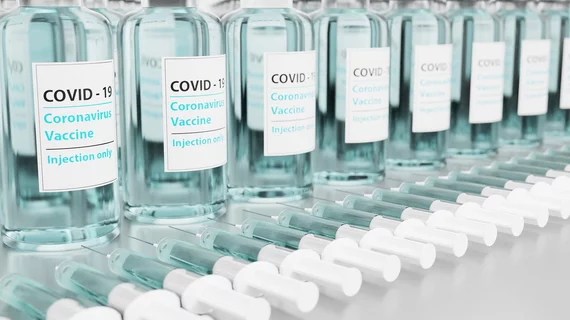Severe COVID-19 ages the brain 20 years
Severe COVID-19 can lead to a cognitive decline equivalent to 20 years of aging, according to a recent study.
Scientists from the University of Cambridge and Imperial College London assessed the different aspects of mental faculties of patients about six months after their acute illness of COVID-19 using the Cognitron platform. Researchers analyzed 46 individuals who received in-hospital care, on the ward or intensive care unit, for COVID-19 at Addenbrooke’s Hospital, part of Cambridge University Hospitals NHS Foundation Trust, for the study. All patients in the study were admitted between March and July 2020 and were recruited to the NIHR COVID-19 BioResource. Of the patients, 16 were put on mechanical ventilation during their hospital stay.
Previous research has suggested that patients even with mild COVID-19 cases can suffer from lasting cognitive and mental health problems, such as ‘brain fog’, problems recalling words, sleep disturbances, anxiety and even post-traumatic stress disorder (PTSD) months after infection. One U.K. study found one in seven individuals had cognitive difficulties 12 weeks after a positive COVID-19 test.
Compared to a control population, the COVID-19 survivors in the study were less accurate and with slower response times. Researchers measured the COVID-19 group against 66,008 members of the general public to estimate the magnitude of cognitive loss is similar on average to that sustained with 20 years aging––between 50 and 70 years of age––and that this is equivalent to losing 10 IQ points. The deficits were detectable with patients who followed up six months later, with the strongest effects among those who were put on a ventilator.
“Cognitive impairment is common to a wide range of neurological disorders, including dementia, and even routine aging, but the patterns we saw––the cognitive 'fingerprint' of COVID-19––was distinct from all of these,” David Menon, MBBS, MD, PhD, from the Division of Anaesthesia at the University of Cambridge and the study’s senior author said in a statement.
Survivors scored worse when it came to difficulty finding the right words, known as verbal analogical reasoning, as well as slower processing speeds. Severity of acute illness was found to be a good predictor of cognitive deficits. Unfortunately, recovery of the cognitive deficits appears to be slow and gradual and influenced by many factors, including illness severity and its neurological or psychological impacts.
“We followed some patients up as late as [10] months after their acute infection, so were able to see a very slow improvement,” Menon said. “While this was not statistically significant, it is at least heading in the right direction, but it is very possible that some of these individuals will never fully recover.”
The cognitive impacts could be caused by direct viral infection, but they could also be from a combination of factors that contribute, including inadequate oxygen or blood supply to the brain, blockage of large or small blood vessels due to clotting, and microscopic bleeds. The most important factor is likely damage caused by the body’s own inflammatory response and immune system.
The study was limited to patients who were admitted to the hospital, and researchers noted cognitive deficits could impact those who had milder cases and weren’t sick enough to be admitted.
“Around 40,000 people have been through intensive care with COVID-19 in England alone and many more will have been very sick, but not admitted to hospital,” Adam Hampshire, PhD, professor with the Department of Brain Sciences at Imperial College London and the study’s first author, said in the statement. “This means there is a large number of people out there still experiencing problems with cognition many months later. We urgently need to look at what can be done to help these people.”
The findings were published in eClinicalMedicine.

